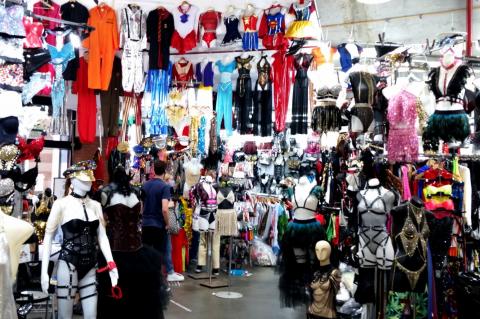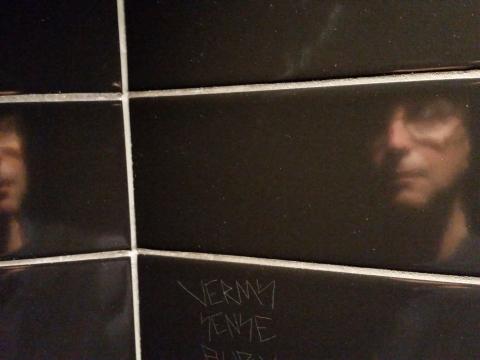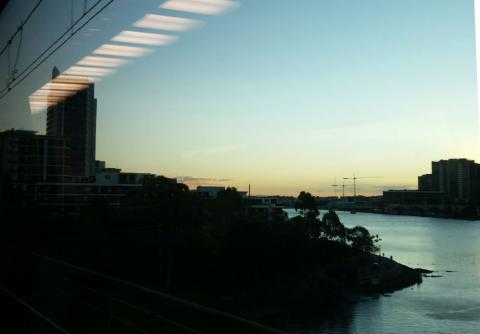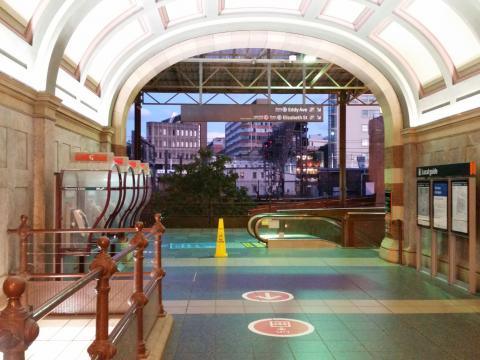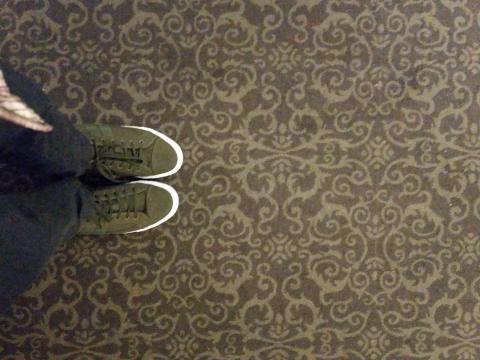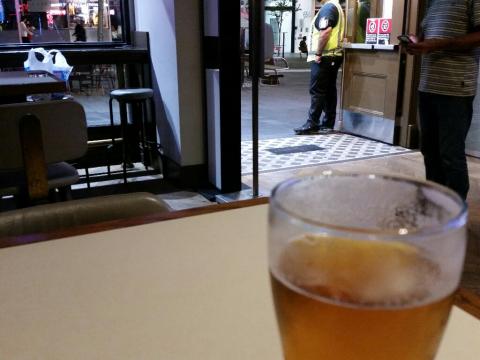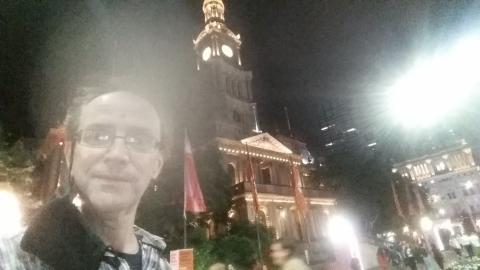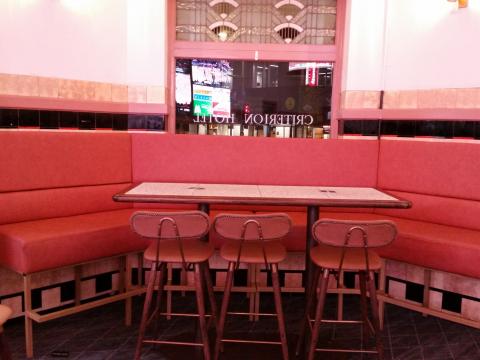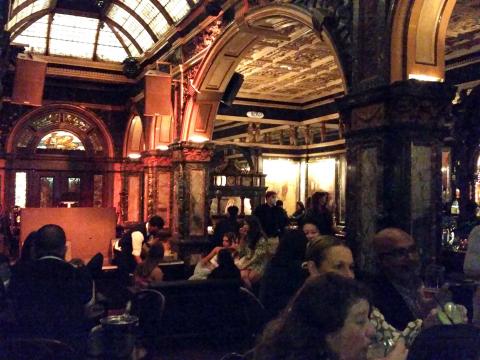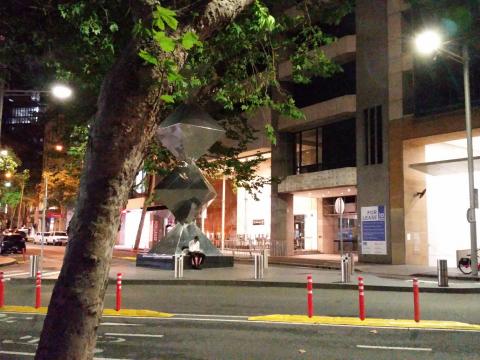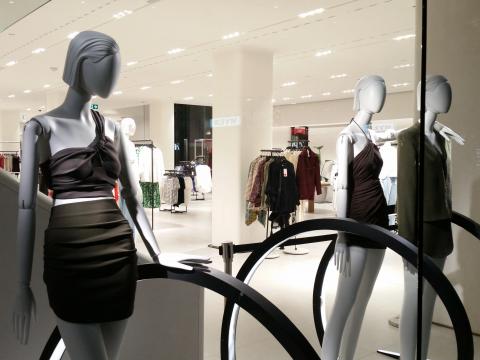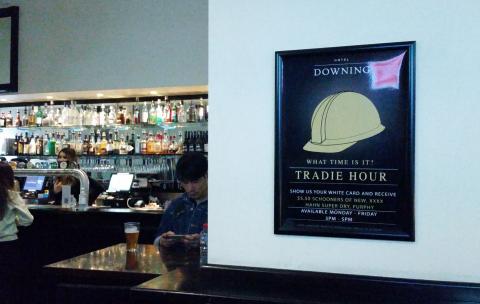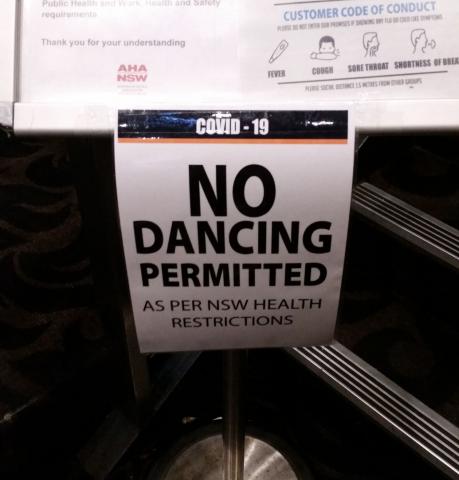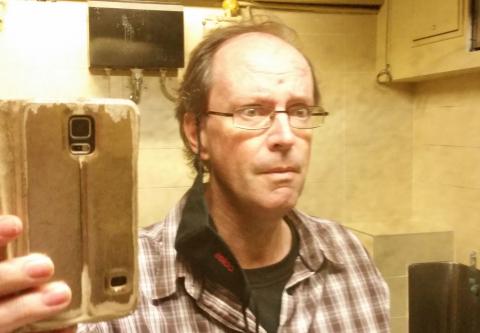Sunday, 1 May 2022 - 11:40am
This month, I have been mostly working on #ThePlan:
- Bizarro — by Dan Piraro:
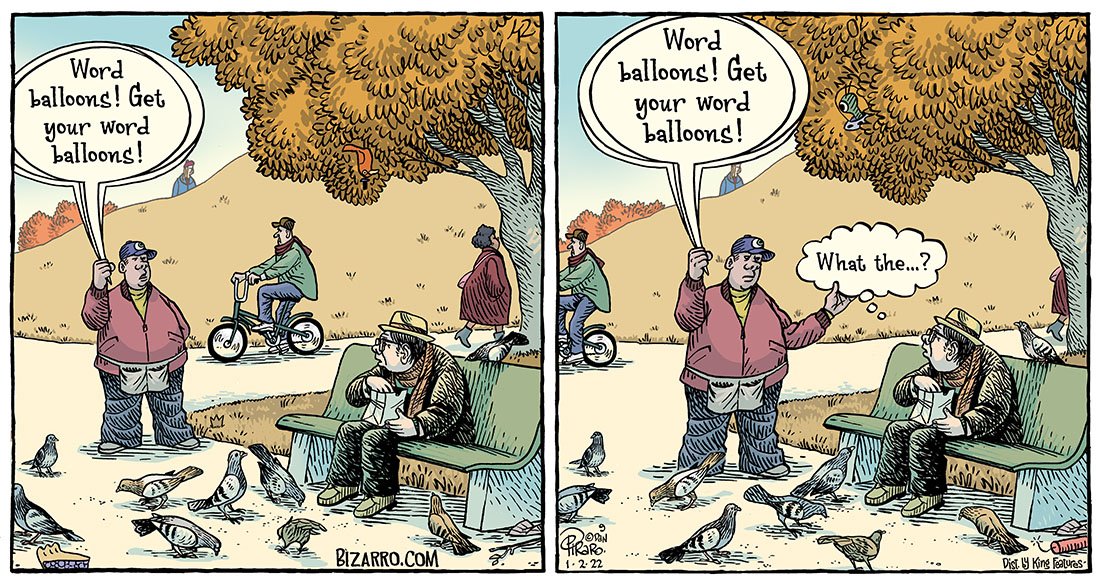
- Your Man in Saughton Jail Part 1 — Craig Murray:
Once in the yard, the new prisoners (who on this occasion arrived individually, not all part of the same case), immediately started to call out to the windows of Glenesk block, shouting out for friends. “Hey, Jimmy! Jimmy! It’s me Joe! I am back. Is Paul still in? What’s that? Gone tae Dumfries? Donnie’s come in? That’s brilliant.” The realisation dropped, to be reinforced every day, that Saughton jail is a community, a community where the large majority of the prisoners all know each other. That does not mean they all like each other – there are rival gangs, and enmities. But prison is a routine event in not just their lives, but the lives of their wider communities. Those communities are the areas of deprivation of Edinburgh. Edinburgh is a city of astonishing social inequality. It contains many of the areas in the bottom 10% of multiple social deprivation in Scotland (dark red on the map below). These are often a very short walk from areas of great affluence in the top 10% (dark blue on the map). Of course, few people make that walk. But I recommend a spell in Saughton jail to any other middle class person who, like myself, was foolish enough to believe that Scotland is a socially progressive country.
- Non Sequitur — by Wiley Miller:
- I never saw exceptional “hard work” or “intelligence” among the members of the class I was born into — Meghan Bell in Passage:
An economic system based on ruthless competition inevitably fetishizes extreme skill and effort, thus incentivizing monopolistic and gatekeeping behaviours. This has led to an increasingly polarized labour market, consisting of what author Daniel Markovits, in his book “The Meritocracy Trap: How America’s Foundational Myth Feeds Inequality, Dismantles the Middle Class, and Devours the Elite,” refers to as wage-stagnated “gloomy” jobs and high-paying “glossy” jobs, such as those described above, which, by design, displace middle-class labour (Markovits uses as an example loan officers who were deskilled by financial technology; a way to climb the wealth ladder is to design or implement technologies that wipe out jobs a few rungs down). The concentration of decision-making power in fewer hands actually lowers overall production within companies, because the monopolization of power and technical knowledge diminishes the potential productivity of all the workers who are pushed to the bottom. In other words, “merit” is not about talent, ability or production so much as it’s about narcissistic control — think of the Wall Street bankers who were bailed out after the 2008 crisis because they were perceived as too big to fail.
- What Scott Morrison’s really saying by aligning with Pentecostals — Roderick St George in Pearls and Irritations:
It must be clearly understood that according to Morrison and his Christian ilk there is a literal spiritual war being waged over Australia – a war between good and evil, a war being fought in the heavens between angelic and demonic powers. Morrison’s own language confirms this as evidenced by his speech at the Australian Christian Churches conference on the Gold Coast in April. Social media, he warns is a, “weapon used by the evil one.” (I am not making unsubstantiated accusations; I was myself indoctrinated by Morrison-style church culture for many years.) This ardent belief system explains – in part – why Morrison, as immigration minister, introduced a host of dictatorial and ruthless changes to Australia’s immigration policy, the like of which this country has never known. But, as an Evangelical Christian he was doing God’s work, keeping “those types” out of this Christian nation. One of his first moves was to bar all media coverage of the maritime arrivals on Christmas Island, making it easier to implement his cruel and unusual new edicts. Morrison’s claim to be called by God “for a time and a season” might be a recent revelation to the Australian public, but make no mistake; he likely believes this mandate was “given” to him many years ago.
- Dinosaur Comics — by Ryan North:

- America is now in fascism’s legal phase — Jason Stanley in the Guardian:
Chapter 9 of Carter G Woodson’s 1933 book, The Mis-Education of the Negro, is called Political Education Neglected. In it, Woodson describes how history was taught “to enslave the Negroes’ mind”, by whitewashing the brutality of slavery and the actual roots and causes of racial disparities. In Fugitive Pedagogy: Carter G Woodson and the Art of Black Teaching, Jarvis Givens documents the strategies Black educators used to convey real history in the constricted environments of Jim Crow schools, strategies that, tragically, will again become necessary for educators to take up again today. Fascist ideology strictly enforces gender roles and restricts the freedom of women. For fascists, it is part of their commitment to a supposed “natural order” where men are on top. It is also integral to the broader fascist strategy of winning over social conservatives who might otherwise be unhappy with the endemic corruption of fascist rule. Far-right authoritarian leaders across the world, such as Brazil’s Jair Bolsonaro, Hungary’s Viktor Orbán, and Russia’s Vladimir Putin, have targeted “gender ideology”, as nazism targeted feminism. Freedom to choose one’s role in society, when it goes against a supposed “natural order”, is a kind of freedom fascism has always opposed.
Sunday, 10 April 2022 - 10:14am
This month, I have been mostly reading:
- Bloom County — by Berkeley Breathed:
- Art Spiegelman Loses His Glasses: As the latest fight over Maus erupts, its artist-creator searches for his spectacles. — Abraham Riesman at Vulture spins what appears to have been a very short interview into a slightly longer article:
As Spiegelman sees it, the real reason for the board’s decision may be that the narrative of Maus offers no catharsis, let alone comfort, to readers. There are no saviors. No one is redeemed. The characters — Spiegelman’s family — remain the imperfect people they were to begin with. “It’s a very not-Christian book,” Spiegelman says. “Vladek didn’t become better as a result of his suffering. He just got to suffer. They want to teach the Holocaust. They just want a friendlier Holocaust to teach.”
- Mum & Dad Bank to keep interest rates steady at 0% — Callum Wratten at the Shovel:
Despite increasing anxiety about inflation and out-of-control housing costs, the Bank of Mum and Dad announced this morning that they will keep interest rates at 0%. It is the 110th month that the central bank has kept rates unchanged. Bank of Mum & Dad Governor, Mum, said the decision wasn’t made lightly. “We looked very carefully at all the data, the impact that it was having on the cost of living for working Australians. But then we thought about our little baby boy, the apple of eye, our little prince, and how he just wanted an investment property so badly.”
- Bizarro — by Wayno and Piraro:

- Why does Australia still sell weapons to human-rights abuser Saudi Arabia? — Dechlan Brennan in Pearls and Irritations:
In 2016 the UN reported that “Since the beginning of this conflict in Yemen, weddings, marketplaces, hospitals, schools – and now mourners at a funeral – have been hit, resulting in massive civilian casualties and zero accountability for those responsible.” […] In 2018 Australia sought to break into the top 10 defence-exporting countries. Various Australian defence ministers have courted more weaponry sales towards both Saudi Arabia and the UAE. The Australian government does not provide data on where its weapons sales go —only mapping it in regions. Unhelpfully, they lump the Middle East in with Asia. It is shocking is that Australia is involved at all. […] Other abuses perpetrated by the Saudi military include “civilian populations being deliberately starved, medical supplies being blocked, rape, murder, enforced disappearances, torture, and forcing children to fight.” Human Rights Watch (HRW) stated that Australia risked complicity in war crimes if it continued to supply the Saudi-led coalition with arms.
- Those Who Support Internet Censorship Lack Psychological Maturity — Caitlin Johnstone:
Arguably the most significant political moment in the US since 9/11 and its aftermath was when liberal institutions decided that Trump’s 2016 election was not a failure of status quo politics but a failure of information control, which just so happened to align perfectly with the agendas of the ruling power structure to control the dominant narratives about what’s going on in the world. We saw this exemplified in 2017 when Google, Facebook and Twitter were called before the Senate Judiciary Committee and instructed to come up with a strategy “to prevent the fomenting of discord”. […] The danger of this is obvious to anyone who isn’t a stunted emotional infant. The danger of government-tied monopolistic tech platforms controlling worldwide speech far outweighs the danger of whatever voice you might happen to dislike at any given moment. The only way for this not to be clear to you is if you are so psychologically maladjusted that you can’t imagine anything bad coming from your personal preferences for human expression being imposed upon society by the most powerful institutions on earth.
- The K Chronicles — by Keith Knight:

What I Did on my Holidays, Part Two
 You would think there'd be somewhere open for breakfast in Chinatown on a Saturday morning. You'd be wrong. What are noodles for, if not for breakfast?
You would think there'd be somewhere open for breakfast in Chinatown on a Saturday morning. You'd be wrong. What are noodles for, if not for breakfast?
I wanted to pick up a hat from Paddy's Markets, just behind my hotel, before setting out. Apart from fruit and veg stalls, they're not open till ten o'clock, so I and my bare old bonce brave the ultraviolet unprotected.
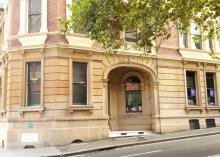 At the north end of Chinatown is Sydney Trades Hall, nowhere near as grand as the Melbourne one. The ground floor used to be the Trades Hall Inn, but no longer. I love political activism that you can do from a pub. In here I used to sip beer and nod earnestly in the cause of stopping the introduction of the GST (Australia's VAT), and the Iraq War (or at least Australia's involvement therein).
At the north end of Chinatown is Sydney Trades Hall, nowhere near as grand as the Melbourne one. The ground floor used to be the Trades Hall Inn, but no longer. I love political activism that you can do from a pub. In here I used to sip beer and nod earnestly in the cause of stopping the introduction of the GST (Australia's VAT), and the Iraq War (or at least Australia's involvement therein).
On the heels of these stunning triumphs for the mildly-organised left, I remember somebody asking Ian Rintoul what he thought the next urgent issue would be, and he said it was refugee rights. I found this hard to credit. Who on earth could object to taking in a few refugees every now and then? In my defense, it was a slightly more innocent time.
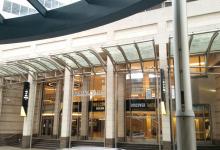 Further up (latitudinally) and down (geologically, as the land descends to meet the harbour) Sussex Street, things get grimly prosperous.
Further up (latitudinally) and down (geologically, as the land descends to meet the harbour) Sussex Street, things get grimly prosperous.
It's all grand gaudy f-off facades, designed to destroy the streetscape, plus the grimy parking garages of posh hotels disgorging their contents with a clanking of grates and barriers. It's as ugly as sin. From my own much more modest hotel, you at least step out onto a living street. Nobody walks down here. It's death by wealth.
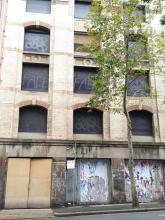 Nothing to see but the occasional ghost of a more productive past. I wonder what these buildings were for. I used to work down in this part of town thirty years ago and probably walked past them hundreds of times, but I can't remember.
Nothing to see but the occasional ghost of a more productive past. I wonder what these buildings were for. I used to work down in this part of town thirty years ago and probably walked past them hundreds of times, but I can't remember.
I get to Circular Quay to meet my family with enough time to purchase/regret a breakfast snack at McDonalds. By the water, the buskers have yet to set up, but there are huge plastic tigers which I just realise I've been seeing all over town. Oh, right; it's Chinese New Year. I don't think I look at the things you're supposed to look at. Quite pleased about that.
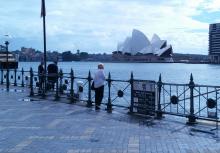 The family thing works out as family things do. It's nice. I'm not used to seeing all these people without my dad in the background, either benignly amused or becoming tetchy about things not progressing according to schedule. From here on, it looks like I'm standing in the background by myself. I miss him.
The family thing works out as family things do. It's nice. I'm not used to seeing all these people without my dad in the background, either benignly amused or becoming tetchy about things not progressing according to schedule. From here on, it looks like I'm standing in the background by myself. I miss him.
Formalities done, we've enough time before lunch to wander round the Rocks Markets, which seems to be suffering from Covid. Not a lot of international tourists, and pretty slim pickings from a reduced number of stalls. Can't find a hat.
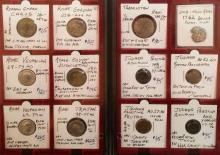 There's a stall selling coins. I expect to find a selection of pennies, ha-pennies, and shillings — Mum says she still has a huge jar of them at home — but holy cow! Vespasian! Trajan!
There's a stall selling coins. I expect to find a selection of pennies, ha-pennies, and shillings — Mum says she still has a huge jar of them at home — but holy cow! Vespasian! Trajan!
If I had a few hundred bucks I had no use for (ha!), I would be tempted. But then my inner Indiana Jones kicks in: These belong in a museum! Ideally, in a huge glass pickle jar.
My family is chemically gaseous. That is to say they expand to occupy the available space. We've a booking for lunch, but now it's down to my brother's teenage girls and their mobile phone skills to corral everybody. I notice with some envy that a couple of nephews have been lounging in the Mercantile Hotel for a while.
We have lunch at the German restaurant which nearly twenty years earlier hosted my wedding reception. A bit of icing on top of the grief cake just for me. Still, sausages and sauerkraut and a couple of glasses of quite agreeable rosé later, I'm feeling bulletproof.
Half the party head for market stalls promising gelato and chocolate, and the other half head for the Orient Hotel. I'm with the latter, sipping beer at a picnic table on the street, getting sunburnt. Wish I had a hat.
They're all going to miss their express train back down to the Shire. Not everybody makes the rendezvous point back at the quay at the appointed time. My sister volunteers to find/join her two errant sons at whatever pub they happen to be holed up in — no rush; still plenty of time. My father would be beside himself at this stage. Greatly amused, I give the assembled remnants of my family a cheery wave, and I'm free to enjoy a whole afternoon and evening in the big city, Mary Tyler-Moore style.
I just need a hat to fling in the air.
I make a beeline for the Paragon Hotel, the former public bar of which is now the McDonalds where I had my self-inflicted breakfast. A quarter of a century ago I went in there on a Sunday afternoon and was surprised to hear Bix Beiderbecke playing as muzak. There was a jazz band setting up in the back corner, so I stayed.
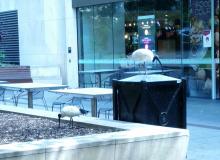 They were blistering. Hard-edged 1920s/30s Chicago-style jazz. Absolutely magical. I was mesmerised by the clarinet player, a strikingly tall, thin, grey, birdlike fellow who didn't seem to register that he had an audience at all, and just fidgeted away in his own little world. He's surely long dead now, like the pub. So it goes. The half of the back bar where they played is now for gambling zombies, and the tiny slice of pub remaining between that and McDonalds is pretty dismal. I sit outside and watch the Sydney Bin Chooks going about their business, all thin and birdlike with long black protuberances.
They were blistering. Hard-edged 1920s/30s Chicago-style jazz. Absolutely magical. I was mesmerised by the clarinet player, a strikingly tall, thin, grey, birdlike fellow who didn't seem to register that he had an audience at all, and just fidgeted away in his own little world. He's surely long dead now, like the pub. So it goes. The half of the back bar where they played is now for gambling zombies, and the tiny slice of pub remaining between that and McDonalds is pretty dismal. I sit outside and watch the Sydney Bin Chooks going about their business, all thin and birdlike with long black protuberances.
At the Matrix Woman In Red Fountain in Martin Place, there are white limos reversing off the street and up to the fountain. A bunch of burly blokes in white suits get out and prepare for photographs with the cars. There's also a young woman, in a big white dress. Not sure why she's there. She's holding a bunch of flowers. I expect a bit of skin and a posy is a nice counterpoint to the manliness of the cars and the blokes. Very tasteful.
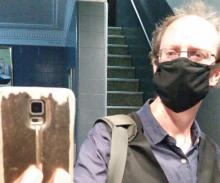 At my old beloved Edinburgh Castle on Pitt Street, I employ the soon-to-be-fashionable medium of the pub lavatory selfie to immortalise the harrowing (for even the most firm-footed drunk) stairs leading down to the gents. Once upon a time I opened the door at the top of these stairs, saw a crumpled body at the bottom, concerned people gathered around, and heard approaching sirens. Even I, dim as I am, almost immediately clocked to what had just transpired. Thought I'd best go back to my beer and give it a minute.
At my old beloved Edinburgh Castle on Pitt Street, I employ the soon-to-be-fashionable medium of the pub lavatory selfie to immortalise the harrowing (for even the most firm-footed drunk) stairs leading down to the gents. Once upon a time I opened the door at the top of these stairs, saw a crumpled body at the bottom, concerned people gathered around, and heard approaching sirens. Even I, dim as I am, almost immediately clocked to what had just transpired. Thought I'd best go back to my beer and give it a minute.
 I take some more self-consciously zany selfies (are there any other kind?) on my way back up to Haymarket, as I'm now feeling the Mary Tyler-Moore vibe.
I take some more self-consciously zany selfies (are there any other kind?) on my way back up to Haymarket, as I'm now feeling the Mary Tyler-Moore vibe.
It doesn't even occur to me that I should plug myself into a podcast, lest one or two of my remaining brain cells get accustomed to slacking off, which I can ill afford. There's enough to see and hear to keep my synapses crackling.
 There's a vast, interconnected floating world of clean, gleaming shopping malls running the length of the inner city that I don't enter. In the nineties I became concerned about the state of dereliction that the city appeared to be falling into. As I only ever went into pubs, bookshops, record shops and newsagents, I didn't really notice the metastisizing private-public space below, above, and beside the public space. I was conscious of it insofar as it all linked into the underground railway station concourses, but at some point I realised that it was possible to walk the roughly eight kilometres from Central Station to near Circular Quay without ever seeing daylight, or a homeless person. Now I suppose there are several routes.
There's a vast, interconnected floating world of clean, gleaming shopping malls running the length of the inner city that I don't enter. In the nineties I became concerned about the state of dereliction that the city appeared to be falling into. As I only ever went into pubs, bookshops, record shops and newsagents, I didn't really notice the metastisizing private-public space below, above, and beside the public space. I was conscious of it insofar as it all linked into the underground railway station concourses, but at some point I realised that it was possible to walk the roughly eight kilometres from Central Station to near Circular Quay without ever seeing daylight, or a homeless person. Now I suppose there are several routes.
So many homeless people, obviously long term. The mattresses, tents, etc. are new to me. Fortunately there are so many derelict shop doorways and alcoves now that the beautiful people live in their floating world. One could get really settled in as a homeless person in Sydney, were it not for the roaming packs of Nazis in the wee small hours. Damn. There goes that Mary Tyler-Moore feeling.
Finally get back to Paddy's Markets, thinking I'll pick up a hat and maybe some cheap clothes. It could always be relied upon for a Bob Marley t-shirt, or something similarly subversive.
Woah! Okay, well. I'd never say never, but not for everyday, and certainly not for visiting my mother tomorrow morning. Apart from the range of mild fetish gear, which is new, Paddy's Markets is a shadow of its former self, but then it always was.
 I did however find a hat. It hurt to put it on. Definitely sunburned. Went upstairs (through the mall) to the Market City Tavern, which I should hate because it's so artificial and built for — rather than just retrofitted for — gambling, but I do love the balcony and its glorious view of nothing in particular. I shall have to carry on up George Street to Broadway to get some cheap clothes, because unlike all the teenage boys I work with in my supermarket, I cannot bear to wear the same shirt two days running.
I did however find a hat. It hurt to put it on. Definitely sunburned. Went upstairs (through the mall) to the Market City Tavern, which I should hate because it's so artificial and built for — rather than just retrofitted for — gambling, but I do love the balcony and its glorious view of nothing in particular. I shall have to carry on up George Street to Broadway to get some cheap clothes, because unlike all the teenage boys I work with in my supermarket, I cannot bear to wear the same shirt two days running.
On the way out I take the time to pose for another pub lavatory selfie.
These are the hottest new thing, honestly. I'll be selling NFTs shortly.
If that's not a natural cliffhanger, I don't know what is. Will he get the shirt, or turn up for morning tea at Mum's a bit whiffy? How bad is the sunburn, and what will the morning shower feel like? (Spoiler alert: it really hurt.) And will the latex Wonder Woman costume fit comfortably?
Continued in part three.
What I Did on my Holidays, Part One
TL;DR: I drank. A lot.
We begin on Friday morning at Sawtell station. Yes, that's all of it. No bustling phalanx of porters, no guards or ticket collectors, no dining room serving Devonshire teas, no passengers apart from yours truly. This is not a consequence of Covid; this is normal.
In fact I'm astonished to find that I'm actually able to get the train, rather than a replacement bus service, as was the case for my last trip down to Sydney. That was a nightmare. A tin can full of hillbillies, knees hard up against the seat in front of you, a dozen excuse mes, sorrys, and thank yous between your seat and the stinking lavatory. Thank God I don't have to go through that again.
The train arrives dead on time, stopping for nobody but little old me. I'm drunk with the power to halt an entire train single-handed.
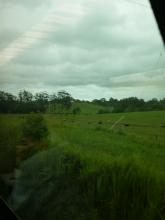 There are some cows to look at. Which is nice. You don't get cows from a car window now that it's all motorway between Coffs and Sydney.
There are some cows to look at. Which is nice. You don't get cows from a car window now that it's all motorway between Coffs and Sydney.
I catch up on podcasts. Really enjoyed this one with Bill Mitchell wandering off core Modern Monetary Theory into politics a bit more than usual.
Not that many people in my carriage, so I'm not bumping elbows with anybody. No screaming babies, and the only yammering hillbillies are some distance away and only going as far as Port Macquarie for a music festival. No prizes for guessing what genre of music it is.
The situation appears altogether too good. I'm prepared for the nine hour trip: a packet of pork scratchings and three plastic soft drink bottles. One is cool from the fridge, another cold from a few hours in the freezer, a third frozen overnight in the freezer. Your classic alcoholics' Goldilocks strategy: take each one in series when it's just right.
My patented blend: cardboard box wine, a splosh of fruit juice to disguise the fact that it's box wine, and if I'm feeling fancy perhaps some herbal tea but otherwise just water to get it down to somewhere approaching beer strength. I hear that in Mediterranean countries it's common to drink watered down wine with meals. Obviously not good quality wine, but with the horrible stuff I can afford to drink, there are no rules.
 Well, there is one rule: no BYO drink on NSW Transport vehicles. But that rule obviously only applies to amateurs, not responsible professionals. Moreover, as I trust I need not stress with too much stressiness: nine hours! There is too much Australia. We need a good tailor to take it in. It's really quite baggy.
Well, there is one rule: no BYO drink on NSW Transport vehicles. But that rule obviously only applies to amateurs, not responsible professionals. Moreover, as I trust I need not stress with too much stressiness: nine hours! There is too much Australia. We need a good tailor to take it in. It's really quite baggy.
While looking for an unoccupied lavatory, I find that the front two carriages are completely empty. It actually is a wonder that I'm not on a bus.
It's gone noon, and the entertainment value of the cows is diminishing, so I crack open bottle number one. Bracing, but not technically abusive. You would be within your rights to demand your money back, but no court in the land would award you damages.
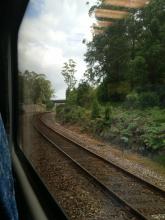 We stop to let a northbound passenger train go past. There's only a single track running along the East coast of Australia, and few sidings where trains can pass each other. Accordingly, everything is very tightly scheduled. If your train is more than a few minutes late, it's missed it's "window" and is obliged to make way for everything else. So you get later, and later, and later.
We stop to let a northbound passenger train go past. There's only a single track running along the East coast of Australia, and few sidings where trains can pass each other. Accordingly, everything is very tightly scheduled. If your train is more than a few minutes late, it's missed it's "window" and is obliged to make way for everything else. So you get later, and later, and later.
As a natural pessimist, I assumed that in the unlikely event that the train turned up at all, that this would be the case (as it had been on previous trips). From which it logically follows that the scheduled eight PM arrival time in Sydney could only be the product of pure unicorns-and-rainbows thinking. So I had the perfect excuse to book a hotel room rather than change trains for a further fifty minute suburban trip down to the family estate in the Shire.
The ostensible purpose of my journey is to partake in a solemn ceremony involving scattering my late father's ashes from the deck of a Sydney Harbour water taxi. I'm not entirely convinced that feeding the fish of Port Jackson is the sort of thing he'd have been enthusiastic about — at least not in this capacity — but my mother seems to think it a good idea.
I really haven't a clue about the propriety of such things, so I'm more than happy to go along with whatever wiser heads than mine consider appropriate, but I would rather not go back to the old house. I stayed a few days there on my last Sydney trip a couple of years ago as a sort of dare to myself, wandering about the unpaved suburban streets where I spent my childhood, thinking that as a forty-[mumble] year old grown-up I was by now surely immune to the enervating effects of that nasty, violent, ignorant, bigoted environment. (Not the house itself, mind; my parents are/were almost entirely harmless. It's the ghosts milling around it that I cannot exorcise.) I ended up in a massive funk which persisted for weeks afterward.
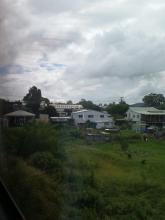 Also I'm now of a certain age, and I appear to have gone through The Change. I get terribly emotional about things. I must say it's quite unexpected and embarrassing. In this condition I couldn't stand spending even a couple of nights in a house where my father would now consistently fail to be where I expect to find him. I'd be a wreck. So I told my mum that, on the grounds that I would be feeling very much like just flopping into bed on arriving at Sydney Central, rather than embarking on a further long commute, a hotel made perfect sense. I'd meet everybody in town the next day, and pop down for a visit the day after. She seemed satisfied with that excuse.
Also I'm now of a certain age, and I appear to have gone through The Change. I get terribly emotional about things. I must say it's quite unexpected and embarrassing. In this condition I couldn't stand spending even a couple of nights in a house where my father would now consistently fail to be where I expect to find him. I'd be a wreck. So I told my mum that, on the grounds that I would be feeling very much like just flopping into bed on arriving at Sydney Central, rather than embarking on a further long commute, a hotel made perfect sense. I'd meet everybody in town the next day, and pop down for a visit the day after. She seemed satisfied with that excuse.
In fact things are going altogether too well. The train remains stubbornly on schedule. As we get into Wauchope, mobile phone signal returns, and I get an SMS. The train for my return journey has been cancelled and replaced with a coach service. Ah, equilibrium has been restored.
Quaint little country towns flash by, as do the podcasts. The Something About the Beatles podcast has a few episodes of first reactions to the Peter Jackson doco based on the footage and audio recorded in January 1969 for the vague project which the following year became the film/album Let it Be. Titled the Musician’s Get Back, I expected the podcast to be a trainspotter's guide to vintage musical/audio equipment and a complete yawn, but it's (mostly) about group dynamics and those four (or five, or six, or seven) guys who love each other, despite and because of everything. I get quite teary (The Change again - and maybe the wine).
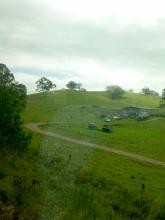 The country around the Hunter Valley is gorgeous. You don't see any of it from the motorway. Rolling green hills which put one in mind of James Herriot and the brothers Farnon rolling up their sleeves and startling a cow or three.
The country around the Hunter Valley is gorgeous. You don't see any of it from the motorway. Rolling green hills which put one in mind of James Herriot and the brothers Farnon rolling up their sleeves and startling a cow or three.
There's a limit to how much of a fifty gram bag of pork scratchings one should consume in one hit if one is to avoid nausea (for the record, it's about ten grams), so I go to the dining car for a sausage roll fresh from the drawer it's been stewing in since dawn, and a can of alleged beer.
It's 330ml of mid-strength lager. Australia likes it's beer flavourless, but this is really the apotheosis of the antipodean brewers' art. To all intents and purposes, the can was already empty when it was sealed. I'll refrain from citing the brand so as to avoid a stampede of connoisseurs rushing to not experience it.
Eight dollars! Eight flipping dollars! Just for the zero point nine standard drinks, then another five for the sausage roll!
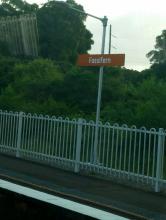 I love the name Fassifern. I think it should be a term of mild rebuke. i.e. "Oh, don't be such a fassifern!" You instantly understand what it means by the way it sounds. Never been there. The place, I mean; I've probably been a fassifern for most of my life.
I love the name Fassifern. I think it should be a term of mild rebuke. i.e. "Oh, don't be such a fassifern!" You instantly understand what it means by the way it sounds. Never been there. The place, I mean; I've probably been a fassifern for most of my life.
Appear to have mobile signal for most of the time now, which was definitely not the case on previous trips. I briefly wonder if it's because of all the Gates/Soros 5G microchips in my bloodstream, but my old phone is only 4G. Did they stealthily vaccinate my phone as well? The bastards!
So I exchange a few texts with Ruben, which helps pass the time.
Newcastle appears to be encroaching on Gosford, or vice versa, as there is now rather little open space between them. From here on you're essentially in the outer suburbs of Sydney. I used to work with people who would commute into the city from this distance.
As there's more built environment, I'm getting more alert my my surroundings. Multi-story buildings! Public transport! Pedestrian crossings! Pedestrians! All the sinful delights that are foreign and abhorrant to the denizens of Coffs Harbour.
Indulge me for a moment: Imagine being confronted with a vista of the most glorious natural splendour. Gravity-defying geological formations. Waterfalls, ravines, rivers and streams. Lush, luxuriant plant life of unimaginable variety; herds of gigantic herbivorous mammals, placid and graceful; gorgeously sleek and agile predators; eye-wateringly colourful birds soaring and swooping to pluck impossibly bejeweled insects from mid-air. And just off to one side a single squalid shack in the distance, with a thin wisp of smoke rising from an open fire.
I've tried several times, in conversation with self-avowed misanthropic nature lovers, to persuade them that in that situation they could not stop their eyes being drawn to that shack. They refuse to concede this, but I am certain that we are attuned to seeking signs of the presence of other human beings. It tickles us in a way we cannot resist. We are homo sociali. I say this as the most introverted person I know. (Not that I know that many people, what with being the most introverted person I know.)
As a lifelong socialist and an amateur macroeconomist, I should abhor metastasising high rise and construction cranes on the horizon as indicators of neoliberal welfare-for-the-rich and impending economic collapse, but my eyes widen and pulse quickens at the sight of them.
Then suddenly Sydney. Oh, Eddy Avenue! How I've missed you!
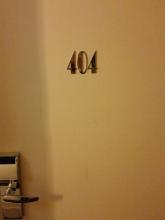 A block and a half away from Central Station is George Street and the art deco Great Southern Hotel. They gave me the perfect room for a web developer who doesn't like to be found.
A block and a half away from Central Station is George Street and the art deco Great Southern Hotel. They gave me the perfect room for a web developer who doesn't like to be found.
If I ever own a place to live, I'm having hotel carpeting throughout.
Now, about that plan to collapse straight into bed… Sod that!
I drop my bags and head up George Street, or "SYDNEY'S STREET OF FEAR", as the Daily Telegraph memorably characterised it on a front page thirty years or so ago. Utter poppycock! I used to practically live on George Street when it was a solid strip of pubs, bookshops, junk food outlets, and video game arcades, and I've never felt so safe anywhere before or since.
A lot of pubs are now derelict due to the current crisis, or the previous crisis, or in anticipation of the next crisis. The first promising target from a nostalgia point of view is Cheers. In the late 80s it was a modest subterranean dive for people who wanted to avoid going to work or going home, but now it occupies several levels with huge sports-screens for vaping gamblers.
I buy a beer on the ground level and head downstairs to the den where so many of my brain cells sacrificed their all so that I might… well, "live" is perhaps too strong a word. At the bottom of the stairs there's a table with a couple of smiling callow youths who explain that the venue is closed to the general public for a private function. Spread out before them are a few open binders full of things in plastic pockets which appear alarmingly collectable. The youths are anxious to explain the nature of the function, saying that for a nominal cover charge I would be most welcome to join them.
It's at this point that my friend Ruben would have leapt eagerly into the fray, spending the whole night having a whale of a time, aquiring an exhaustive knowledge of a hitherto unfamiliar subculture and a bundle of lifelong friends. Alas, I am not that kind of person, so I make my excuses and head back upstairs.
I carry on uphill, past where there are no longer book liquidation stores, video game arcades, and junk shops all blaring the same tape loop of this one guy bunging on a cockney barrow boy accent, promising "You'll never pay full price again!"
Still, it's home.
One block east of the town hall is the Criterion. I remember in the 90s flicking through a guide to Sydney pubs which said it was the place to go if one happened to be a connoisseur of bulbous red noses. Is that supposed to be a bad thing? It's since been acquired by a particularly noxious pub chain who turned it into just another sports bar, but at least they haven't (yet) smashed out all the tiles and bricked in the leaded windows. Also, it's gone quite pink. Which is nice.
In more affluent times, I would never dream of staying out in town to drink on a Friday or Saturday night, these being the nights when the amateurs would spoil the atmosphere with their uncouth behaviour. However I've only a few days and want to make the most of it.
It used to be common for big hotels to have a number of bars in the one complex. I used to quite like the Tudor Bar on the first floor of the Hilton Hotel in Sydney. As the name suggests, it was all vacuum moulded fake timber and horse brasses, but easy on the eyes and a surprisingly cheap no-nonsense boozer for those in flight from reality.
Alas, there is no longer a first floor of the Hilton Hotel. It's been blasted away and replaced by a vast, glass-fronted empty space saying in effect "We don't need to make money from this real estate, but it amuses us to prevent others from doing so. So if you enjoy setting fire to hundred dollar notes in front of homeless people, this is the place for you." In that respect, it's like the similarly cavernous and glazed Apple store across the road containing a sparse smattering of lecterns with elegantly designed flat things propped up on them.
The one bar which the Hilton Hotel still appears to maintain is the Marble Bar. As the name suggests, every surface is at least faux-marble. It's like swimming in a Jackson Pollock kaleidescope. This is not a place for drinking in. It's a place for briefly gawping at and promptly fleeing. In my day it was pretty consistently empty. I supposed it was kept on as a gaudy monument to 1970s excess. Perhaps middle managers and their secretaries found it useful as a place to meet unobserved, I don't know.
Tonight it is packed with coked-up Hooray Henrys and Henriettas.
If ever there's a portent of an economic bubble about to burst, this is it. In my Sawtell finery, which to the untrained eye is indistinguishable from Sydney hobo rags, I feel distinctly unwelcome. As tradition demands, I gawp and flee.
A stroll past more shuttered venues once dear to my heart, and I find myself near the harbour, in the financial district. Knowing there's little joy to be had here I turn around and head back south up Pitt Street. There's a new pub on the corner of Hunter Street that looks enticingly empty. The girl behind the bar asks whether I want a pint or a schooner. I opt for the latter, and she pours me a half pint, which - not to be pedantic - is a hefty gulp or two shy of a schooner and charges me nearly ten dollars for it. A steady stream of beautiful people coming through the door and heading directly upstairs indicates that I'm just in the foyer of a far grander venue, not meant for the likes of me.
There's always street art. This piece is about as old as me. I used to roam this manor professionally back when mail boys used to carry high-denomination cheques from one place to another. Do digital mail boys meet to skive off in electronic pubs?
You must be this emaciated to shop here. Blimey. I'll stick to KMart.
Now, this is more like it. The Hotel Downing in Castlereagh Street. My ex-girlfriend used to work across the road, and I would occasionally wait for her in the other half of this pub which is now reserved for button-slappers. Thankfully, you can't see any of that from this bar, and the mandatory sport screens cover only two of the four walls, so you can keep your back to them and pretend they're not there. Also most of the customers appear to be staff, so there's a lovely family atmosphere. This pub I like.
And about time, too. There's a time and a place for dancing, and it's at the kitchen sink while doing the washing up. Anything else is an abomination. I can't remember which pub this sign was in…
But apparently I thought a distressed selfie in the mirror of the gents' lavatory would be sufficient to jog my memory later. Clearly it was time to revert to Plan A and flop into bed.
Continued in part two.
Sunday, 30 January 2022 - 12:50pm
This month, I have been mostly reading:
- Inside psychogenic death, the phenomenon of "thinking" yourself to death — Frank Bures at Salon:
Most people who enter this neurological tailspin will emerge from it before they hit bottom. They take in new information. They adapt to the new situation. But the few who don't may find themselves at stage five: Psychogenic death. The light goes out of their eyes. They say their goodbyes. They may perk up briefly as if they finally have a goal they can imagine, a solution to their problem: That new goal is death. And within a day or so, they're gone.
- Highly Paid Union Workers Give UPS a Surprise Win in Delivery Wars — Thomas Black at Bloomberg (via Bill Mitchell, who explains why there should be no surprise):
The massive labor shortage that’s rocked the U.S. since the pandemic and disrupted long-established employment relationships hasn’t had much impact on UPS, which pays its unionized drivers the highest wages in the industry. That’s helped it maintain a stable workforce and rising profits throughout the current disruptions. Meanwhile, lower-paying, nonunionized FedEx racked up $450 million in extra costs because of labor shortages. And while UPS easily beat earnings expectations and predicted a rising profit margin in the U.S. for the fourth quarter, FedEx signaled that its profit margin will fall further. The lack of workers is taking a toll on its reliability, too. FedEx’s recent on-time performance for express and ground packages has sunk to 85%, while UPS has met deadlines on 95% of those packages, according to data collected by ShipMatrix Inc. […] The difference in performance predates the worker shortage. Even while paying union workers almost twice what FedEx Ground drivers make, UPS earns a return on invested capital that’s more than double its rival’s. In the last full year, UPS and FedEx each had sales of about $84 billion; UPS banked $7.7 billion of operating income, while FedEx earned $5.9 billion.
- Renting Sucks — Caitlin Johnstone:
This is where my kids have spent most of their lives. Their heights are drawn on the door jamb in the kitchen. Losing this house is like losing a loved one. I’m also a bit nervous about where we’ll wind up; we can’t afford to buy a house and rent in Melbourne has skyrocketed over the last few years. Mosty, though, I’m just annoyed at this stupid, backwards system which forces people to pay landlords for shelter from the elements if they’re not fortunate enough to be able to afford a home of their own. Rent is largely an extortionate double-dipping scam where renters pay landlords for the privilege of keeping vandals and vermin from destroying their investment property which they’ll generally make a handsome profit off of when they sell, and this practice is held in place by a system which depends on the permanent existence of an underclass who can’t afford to own land.
- Bizarro — by Dan Piraro:
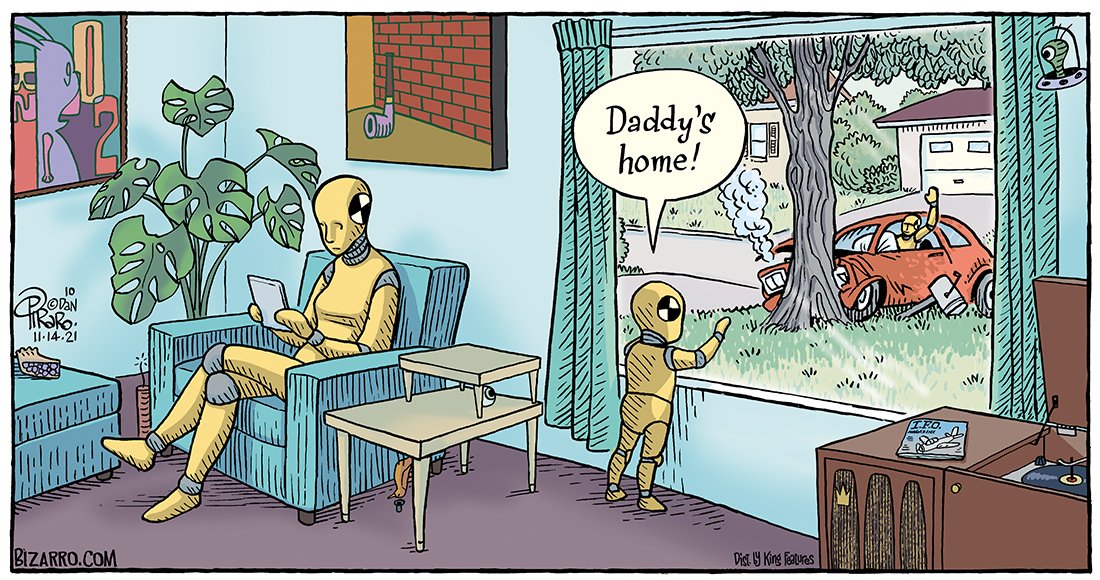
- Seeing the world like Wikipedia – What you should know about how the world’s largest encyclopedia works. — Zachary J. McDowell and Matthew A. Vetter in the LSE Impact of Social Sciences Blog:
As acknowledged by Katherine Maher, former CEO of Wikimedia, Wikipedia is a mirror of society’s biases, and nowhere are these biases more visible than the much-discussed gender gap. The fact is that less than 20% of Wikipedia editors identify as women. This leads to all kinds of issues related to content gaps, policy biases, community climate and harassment, which we discuss in detail in our book. Notably, these issues broke into to mainstream in the case of Donna Strickland (the first woman to win a Nobel Prize in Physics since Marie Curie), who not only did not have a Wikipedia page until about 90 minutes after she won, but as it later emerged had a previous draft of her article rejected for not meeting notability standards. This and other issues are part of a larger systemic bias (eg. the lack of reporting on women in science), but are exacerbated and reflected by low levels of diversity within Wikipedia itself.
- Domino Theory — George Monbiot:
It’s true that within a few years, as the advocates argue, the entire stinking infrastructure of petrol and diesel could be overthrown. But what is locally clean is globally filthy. The mining of the materials required for this massive deployment of batteries and electronics is already destroying communities, ripping down forests, polluting rivers, trashing fragile deserts and, in some cases, forcing people into near-slavery. Our “clean, green” transport revolution is being built with the help of blood cobalt, blood lithium and blood copper. Though the emissions of both carbon dioxide and local pollutants will undoubtedly fall, we are still left with a stupid, dysfunctional transport system that clogs the streets with one-tonne metal boxes in which single people travel. New roads will still carve up rainforests and other threatened places, catalysing new waves of destruction. A genuinely green transport system would involve system change of a different kind. It would start by reducing the need to travel – as the mayor of Paris, Anne Hidalgo, is doing with her 15-minute city policy, which seeks to ensure that people’s needs can be met within a 15-minute walk from homes.
- ‘We Remember a United States That Fought the Nazis’: A German Scholar of Fascism Weighs in on Christian Nationalism in the U.S. — Andrew L. Seidel in Religion Dispatches:
When I ask, “Do you think that analogies to 1930s Germany are overblown?” She pauses thoughtfully then answers, “I don’t think they’re overblown.” She brought the receipts to our interview. Brockschmidt lists several signals, structures and characteristics of American Christian Nationalism that overlap in worrying ways with fascism. The “myth of a golden past,” is a big one. “[Calling for a return to] how the country used to be when in fact it’s a version that never was. It’s used to divide the country into us and them.” I found this particularly interesting because it goes to the heart of Christian Nationalism—attempting to return America to a Christian nation that never existed. As I’ve written elsewhere, America can never be a Christian nation because the moment it becomes a Christian nation it will cease to be America. Alongside this myth is the tendency to paint outgroups as “not real Americans.” A third marker is the veneration of “law and order, which really just means being tough on a certain portion of the population, not on crime.” Brockschmidt also mentions other “dog whistles used to stoke fear, resentment, and anger against outgroups [in order] to strengthen the feeling of togetherness of [the] ingroup.” Another marker of incipient fascism is “anti-intellectualism,” which can be seen in the “crusade in universities against wokeness and against critical race theory,” and, more broadly, against science, vaccines, and the pandemic itself.
- Saturday Morning Breakfast Cereal — by Zach Weinersmith:
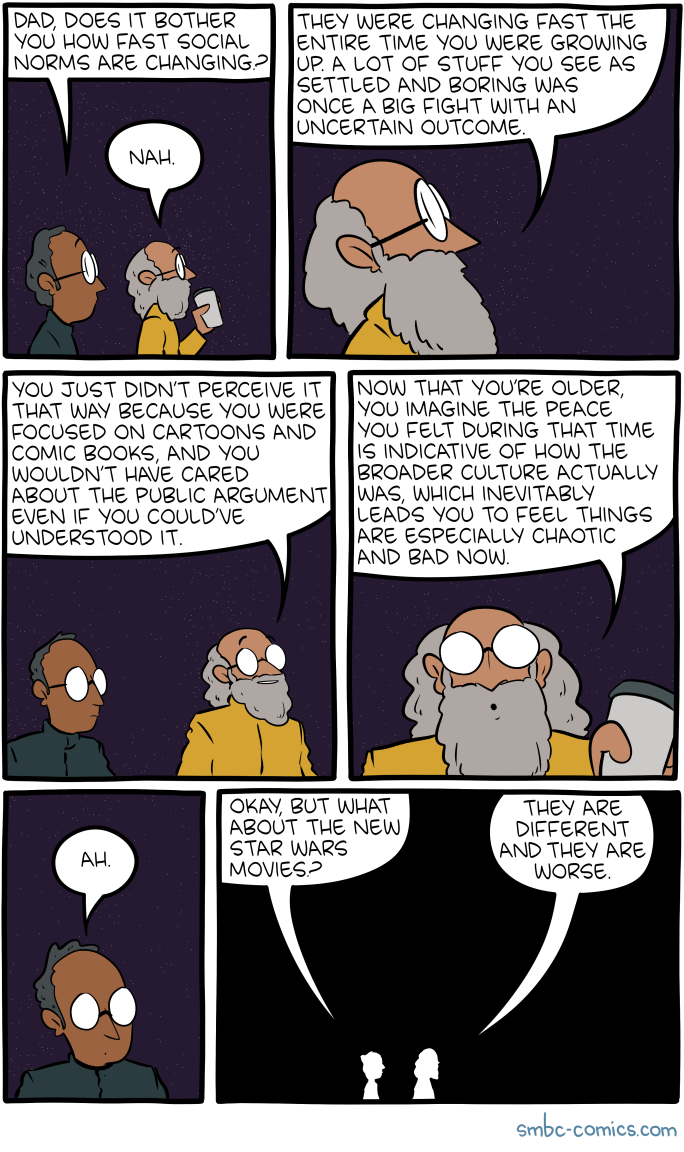
- Lab Leaks — Alex de Waal in the London Review of Books:
In 1977 a strain of influenza reappeared after a twenty-year absence, an event with a probability in the natural world approaching zero. It wasn’t particularly virulent and was superseded by another strain the next year, but its appearance was a mystery. The most likely explanation is that it escaped from a Chinese or Russian laboratory during a vaccine trial. Other escapees include smallpox (in Birmingham in 1978), Sars outbreaks after the Sars epidemic (twice), and foot and mouth disease in the UK. Human error is usually to blame. […] The Covid-19 pandemic may well have been a ‘normal accident’; it’s equally possible that ‘Disease X’, the WHO’s codename for the next pandemic, will be another. If so, it will be the by-product of our total war on microbes, our determination, since the acceptance of germ theory 150 years ago, to collect, classify, experiment with and sometimes exterminate them. As with the Manhattan Project, demand for ever more powerful munitions justifies risk-taking of a kind that the scientists involved don’t fully comprehend.
- Georgia student's 'gay is ok' artwork removed from classroom, compared to Nazi flag, parents say — Brooke Migdon at the Hill:
According to parents, school officials at Oglethorpe Avenue Elementary in Athens, Ga. promptly removed a student’s art piece, which featured a rainbow and the words “Gay is OK” written beneath an umbrella, following a complaint from another parent. When a teacher questioned the decision, an administrator compared hanging the drawing to hanging the flag of Nazi Germany in the classroom, according to a group of parents who witnessed the interaction, NBC-affiliate WXIA-TV 11 reported this week.
- Butterfly sanctuary closes as QAnon believers, thinking it’s home to sex trafficking ring, plot caravan there — Mike Rothschild at the Daily Dot:
The email from the Center makes it clear that the grounds themselves are in direct danger from conference attendees who intend to form a “rolling car protest,” described as a ’Trump Train’-style “caravan to the border” that will likely make a stop at the National Butterfly Center. The Center’s location just minutes away from the Rio Grande has made it a hotbed of conspiracy theories and rumors, which claim it’s a hub of drug smuggling and human trafficking. Many of these rumors are pushed by Brian Kolfage, the leader of an eight-figure fundraising effort to privately build Trump’s border wall Kolfage, who has called the Center’s employees “butterfly freaks” running a “sham” sanctuary devoted to profiting off human misery, has pushed the theories hard, including sharing doctored photos of rafts at a dock outside the Butterfly Center. He’s also spammed Wright with violent threats over Twitter, eventually resulting in his account being suspended. Kolfage himself is not speaking at the event, presumably because he’s currently under indictment for wire fraud and tax evasion due to allegedly stealing from the We Build The Wall nonprofit he founded.
- Phil Are Go!:
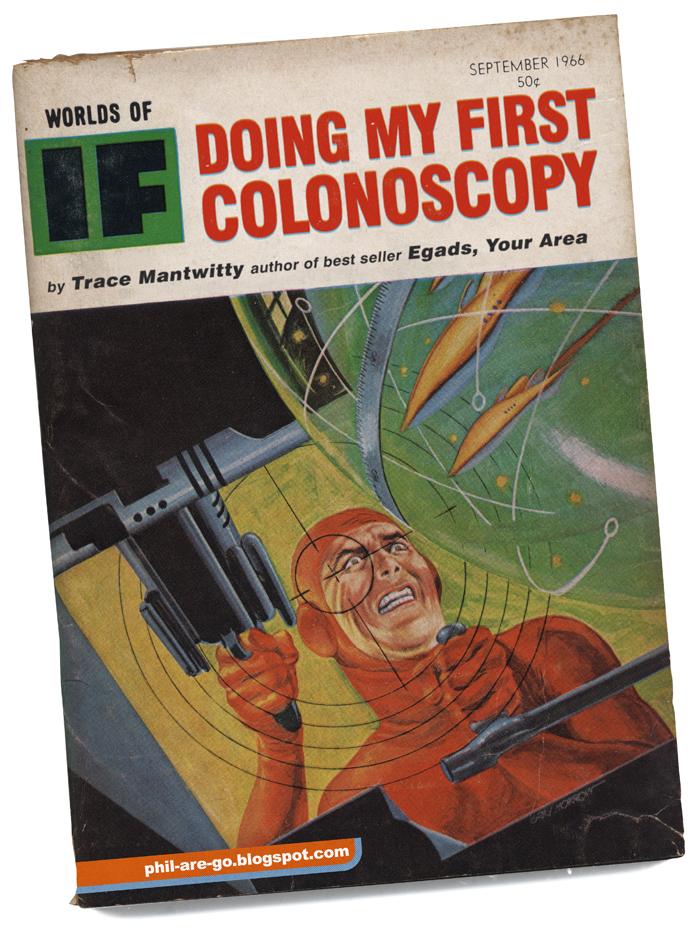
Sunday, 9 January 2022 - 2:34pm
This week, I have been mostly reading:
- The Outer Limits Of Corporate Politics — David Sirota and Andrew Perez:
Democratic Party leaders on Thursday united around a plan to halve their economic agenda, which had already been nearly halved a few months ago. The full loaf is really a quarter loaf, but at this point, it’s actually less than that, because they also slashed promised regulatory and tax provisions that might have reduced medicine prices, provided workers some paid leave, and made billionaires start paying taxes. […] There are laudable provisions in the framework released by the White House, such as an expansion of Medicaid, universal pre-K, subsidized child care, the extension of the child tax credit, tougher penalties for employers who violate labor laws, and spending on clean energy programs. These are significant steps beyond the incrementalism and corporatism of the Obama presidency. However, the deal also seems designed to honor the one campaign promise that President Joe Biden appears most intent on fulfilling: the pledge to his donors that “nothing would fundamentally change” in our economy when he is president.
- Leunig, Wellness, and Wokeness — Robbie Moore in Meanjin:
One infuriating Leunig cartoon, published just after the equal marriage postal vote in 2017, encapsulates how discourses of wellness and anti-wokeness have deranged conservative perceptions of power relations in society. In the cartoon, a man, forlorn and curled up, lies on a street with a placard that says ‘ME’. Facing him is a large group of protestors (some with scary nose rings) holding an ‘LGBTQ’ banner. The composition recalls the image that got Leunig into trouble this month: the Tiananmen tank man, looking ordinary and tiny holding his shopping in front of a massed display of state power. A poem embedded in Leunig’s cartoon reads: ‘Lonely little weirdo, minority of one, nothing much to celebrate, not a lot of fun. So much persecution, so much pain and strife, lonely little everyone, trying to make a life.’ Here, the LGBTQ protesters, gathering to fight for equal rights and equal respect, assume the role of the democracy-crushing Tiananmen tanks, whereas the ‘lonely little weirdo’ is the real ‘minority’ suffering ‘persecution’ and ‘pain’. This is how a counter-cultural boomer politics founded on lonely men fleeing faceless corporate oppressors has been rewired, over just a few years, into a reactionary politics of male victimhood.
- Everything We Know About The Windshield Phenomenon — Diana Bocco, Grunge:
This obvious decline in the population of some insects has made scientists take a closer look at insects in general. Along the way, the theory of the Windshield Phenomenon was born. Simply put, this is the observation that when you're driving, you'll notice that not as many dead insects will accumulate on your windshield as they used to years ago. This doesn't sound very scientific, but the Windshield Phenomenom actually gained traction after a 2017 large-scale study in Germany. According to the study, the presence of insects in German forests and grasslands dropped 78% between 2008 and 2017. Some species couldn't be found at all after a few years — this accounted for an astonishing 34% fewer insect species in the areas researched (via Tree Hugger). As scientist Wolfgang Wägele, Director of the Leibniz Institute for Animal Biodiversity, told Science Magazine, "If you talk to people, they have a gut feeling. They remember how insects used to smash on your windscreen." Today, your windows are likely to be a lot cleaner after a long highway drive.
- Surface Tension — George Monbiot:
An analysis by the media sustainability group Albert found that “cake” was mentioned 10 times as often as “climate change” on UK TV programmes in 2020. “Scotch egg” received double the mentions of “biodiversity”. “Banana bread” beat “wind power” and “solar power” put together. I recognise that the media are not society, and that television stations have an interest in promoting banana bread and circuses. We could argue about the extent to which the media are either reflecting or generating an appetite for cake over climate. But I suspect that, of all the ways in which we might measure our progress on preventing systemic environmental collapse, the cake-to-climate ratio is the decisive index.
- Saturday Morning Breakfast Cereal — by Zach Weinersmith:
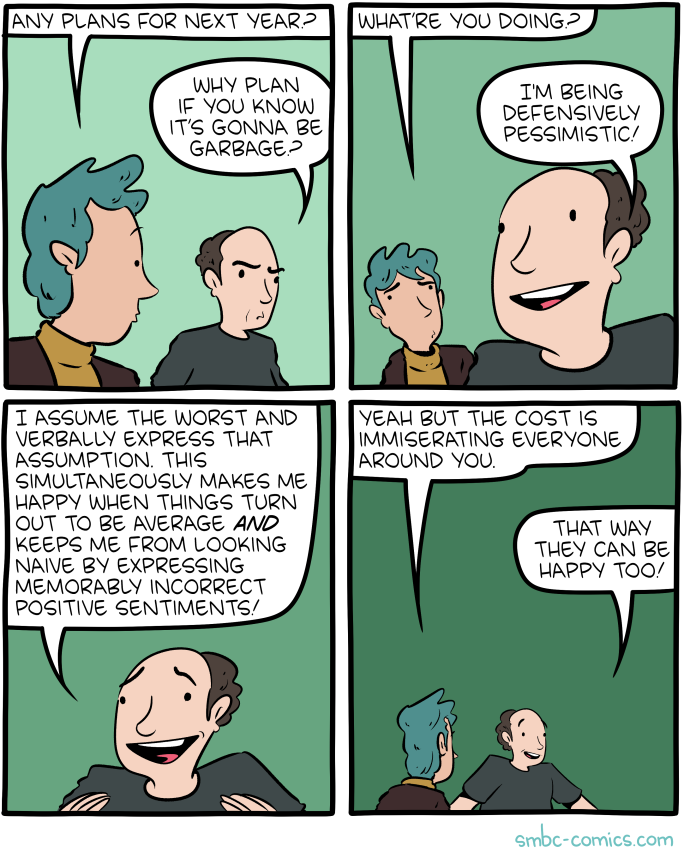
Sunday, 2 January 2022 - 11:33am
As numbers on the calendar ticked over, I was mostly reading:
- Oh Great They’re Putting Guns On Robodogs Now —Caitlin Johnstone:
So hey they’ve started mounting sniper rifles on robodogs, which is great news for anyone who was hoping they’d start mounting sniper rifles on robodogs. At an exhibit booth in the Association of the United States Army’s annual meeting and exhibition, Ghost Robotics (the military-friendly competitor to the better-known Boston Dynamics) proudly showed off a weapon that is designed to attach to its quadruped bots made by a company called SWORD Defense Systems. “The SWORD Defense Systems Special Purpose Unmanned Rifle (SPUR) was specifically designed to offer precision fire from unmanned platforms such as the Ghost Robotics Vision-60 quadruped,” SWORD proclaims on its website. “Chambered in 6.5 Creedmoor allows for precision fire out to 1200m, the SPUR can similarly utilize 7.62×51 NATO cartridge for ammunition availability. Due to its highly capable sensors the SPUR can operate in a magnitude of conditions, both day and night. The SWORD Defense Systems SPUR is the future of unmanned weapon systems, and that future is now.”
- Nurdles: The Worst Toxic Waste You’ve Probably Never Heard Of — Karen McVeigh at Mother Jones:
Nurdles, the colloquial term for “pre-production plastic pellets,” are the little-known building block for all our plastic products. The tiny beads can be made of polyethylene, polypropylene, polystyrene, polyvinyl chloride and other plastics. Released into the environment from plastic plants or when shipped around the world as raw material to factories, they will sink or float, depending on the density of the pellets and if they are in freshwater or saltwater. They are often mistaken for food by seabirds, fish and other wildlife. In the environment, they fragment into nanoparticles whose hazards are more complex. They are the second-largest source of micropollutants in the ocean, by weight, after tire dust. An astounding 230,000 tons of nurdles end up in oceans every year. Like crude oil, nurdles are highly persistent pollutants, and will continue to circulate in ocean currents and wash ashore for decades. They are also “toxic sponges,” which attract chemical toxins and other pollutants on to their surfaces.
- Doonesbury — by Garry Trudeau:
- Refreshingly Honest Billionaire Says Media Purchase Will Be Used For Propaganda — Caitlin Johnstone:
The billionaire CEO of the multibillion-dollar corporation that recently purchased the news media outlet Politico has said that its newly acquired employees will be required to support Israel and the capitalist world order. In a recent interview with The Wall Street Journal, Mathias Döpfner, CEO of the German publisher Axel Springer, said that Politico staffers will be required to adhere to a set of principles which include “support for a united Europe, Israel’s right to exist and a free-market economy, among others.” […] I mean, how refreshing is that? How often does a billionaire corporation buy up a media property and just straightforwardly tell you they’re going to be using it to push propaganda? They even say what the propaganda will be. It makes you feel like your intelligence is being respected.
- David Graeber’s Final Challenge — Giulio Ongaro in Tribune reviews The Dawn of Everything by Davids Graeber and Wengrow:
More than a work on the history of inequality, The Dawn of Everything is a treatise on human freedom. In parsing the anthropological record, they identify three types of freedom—freedom to abandon one’s community (knowing one will be welcomed in faraway lands), freedom to reshuffle the political system (often seasonally), and freedom to disobey authorities without consequences—that appear to have been simply assumed among our ancestors but are now largely lost (obviously, their conclusion is a far cry from Rousseau’s: there is nothing inevitable about this loss!). This analysis flips the question one should really be asking about the historical development of hierarchy: ‘The real puzzle is not when chiefs first appeared,’ they suggest, ‘but rather when it was no longer possible to simply laugh them out of court.’
- Saturday Morning Breakfast Cereal — by Zach Weinersmith:
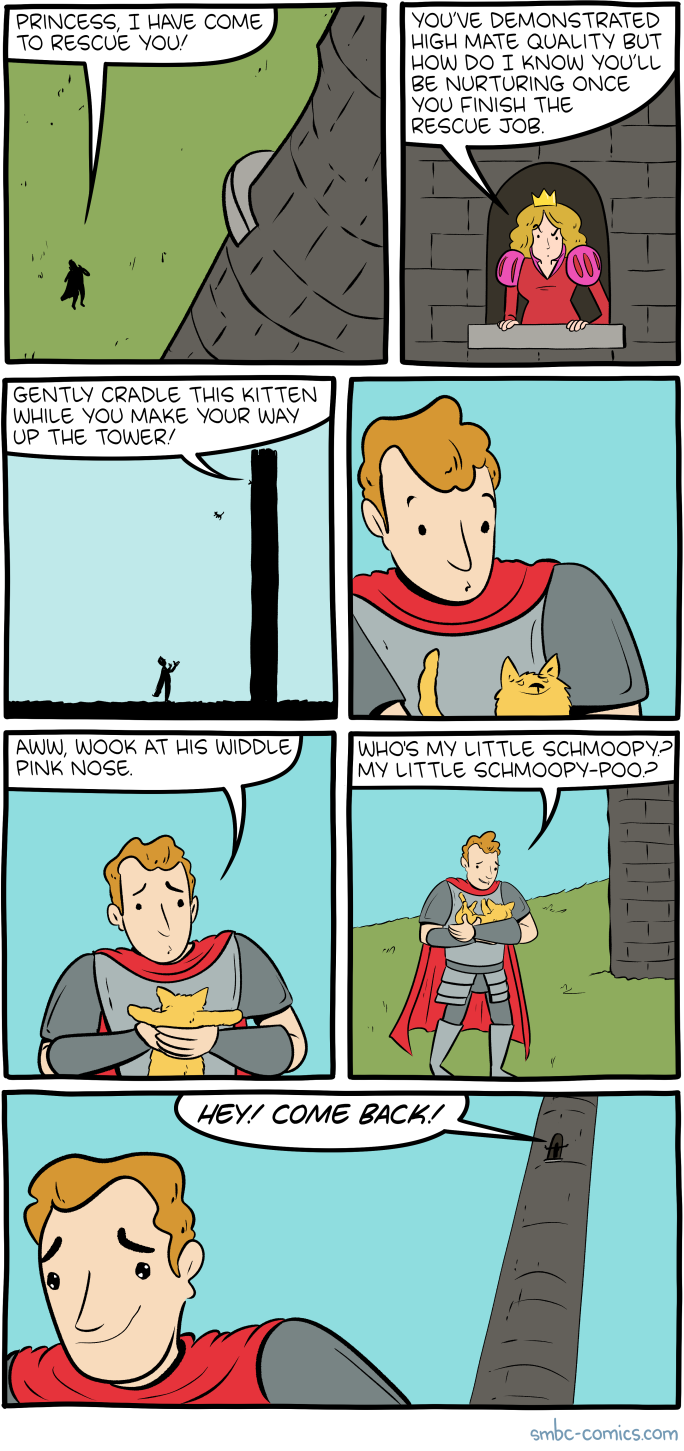
- Soft-wars — Blair Fix:
Political economist Chris Mouré has a new paper out in the Review of Capital as Power. It’s called ‘Soft-wars’, and it is a fascinating case study of the behavior of big tech. The story starts in 2011, when Microsoft led a $4.5 billion consortium purchase of Nortel and Novel. Later than year, Google responded by buying Motorola for $12.9 billion. The funny thing is that Google then proceeded to sell off what it had just bought. By 2014, almost nothing was left of Google-owned Motorola. Nothing except patents. And that, Mouré thinks, was the whole point. Mouré argues that this acquisition war was ultimately a battle over intellectual property. Google and Microsoft were competing to control the mobile market. And the way to do that was not to ‘produce’ anything. It was to command property rights.[…] Mouré’s analysis nicely illustrates a truism in economics: big corporations behave nothing like economics textbooks say they should. The textbooks say that profits should stem from productivity. But the reality is that what big companies care about most is restriction. The battle for profits is a battle over property rights — the legal right to restrict.
Sunday, 19 December 2021 - 7:59pm
This month, I have been mostly drinking too much, but I also read a few things:
- Cuba’s Vaccine Could End up Saving Millions of Lives — Branko Marcetic in Jacobin:
After a dire twelve months, when a too hasty reopening sent the pandemic surging, deaths peaking, and the country back into a crippling shutdown, a successful vaccination program has turned the pandemic around in the country. Cuba is now one of the few lower-income countries to have not only vaccinated a majority of its population, but the only one to have done so with a vaccine it developed on its own. The saga suggests a path forward for the developing world as it continues struggling with the pandemic in the face of ongoing corporate-driven vaccine apartheid, and points more broadly to what’s possible when medical science is decoupled from private profit. According to Johns Hopkins University, as of the time of writing, Cuba has fully vaccinated 78 percent of its people, putting it ninth in the world, above wealthy countries like Denmark, China, and Australia (the United States, with a little below 60 percent of its population vaccinated, is ranked fifty-sixth). The turnaround since the vaccination campaign began in May has revived the country’s fortunes in the face of the twin shocks of the pandemic and an intensifying US blockade.
- In Praise of One-Size-Fits-All — Lawrence B. Glickman in the Boston Review:
In his second inaugural address, FDR celebrated government as an institution that “has innate capacity to protect its people against disasters once considered inevitable, to solve problems once considered unsolvable.” For decades after he died in 1945, the federal government showed itself to be capable of promoting the general welfare not only via programs such as Social Security, Medicare, and Medicaid and through ambitious infrastructure programs (such as the Federal Aid Highway Act of 1956), but in its promotion of civil and voting rights, which, for the first time since Reconstruction, made the United States a true democracy in which all adult citizens had “one-size-fits-all” rights. But as the New Deal order waned, a new ethic emerged that privileged individual choice, denigrated society, denounced public spending, and critiqued the government as sclerotic and increasingly incapable of serving citizens—now often figured as “customers,” “taxpayers,” or “entrepreneurs.” In the process, “one size fits all” migrated from a selling point of modern fabrics to a derogatory term connoting the straitjacket of the autocratic, bureaucratic welfare state. It entered into our political language just as the reigning paradigms of economics (mass production/consumption) and politics (New Dealism) were sputtering. If the phrase signified expansiveness in marketing, it came to stand for constraint in politics. The changing valence of the phrase marks a political transformation with which we are still wrestling.
- Call Corporate Crime Corporate Crime — by the Anonymous (what are they afraid of?) editor of Corporate Crime Reporter:
The section of the Wall Street Journal that covers corporate crime doesn’t use the term. Instead, it’s called Risk & Compliance Journal. NYU Law School has a program to study and report on corporate crime. But they call it the NYU Law Program on Corporate Compliance and Enforcement. The New York Times prefers the term white collar crime. As does the American Bar Association, which has a White Collar Crime Division. Primary topic of discussion? Corporate crime. Why white collar crime instead of corporate crime? White collar crime includes not just the corporate crime of the bank stealing from millions of customers, but bank tellers stealing from the bank. The implication? Hey, it’s not just corporations. Everybody does it!
- Saturday Morning Breakfast Cereal — by Zach Weinersmith:
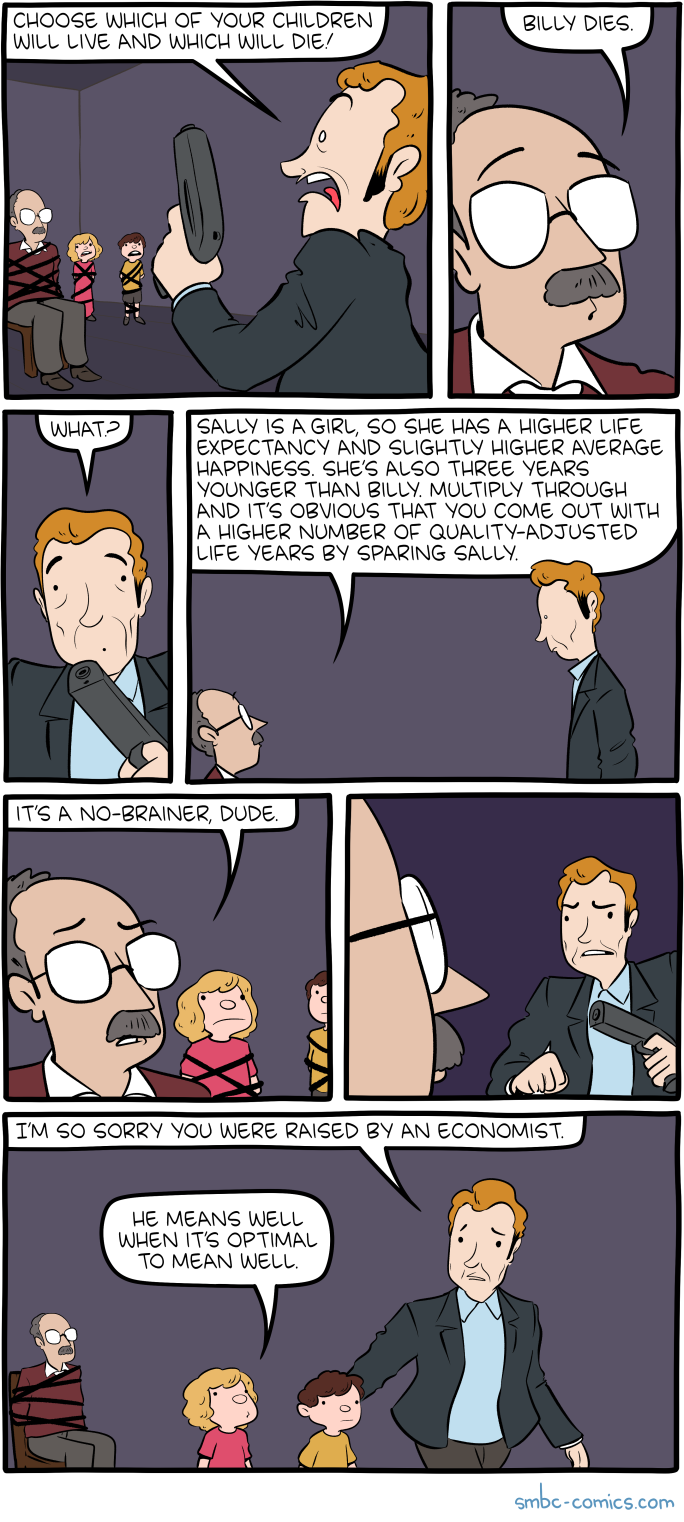
- What living with COVID would really mean for Australia — John Quiggin in Independent Australia:
What most people who talk about “living with COVID” in Australia seem to have in mind is something different: a situation where there is a steady but manageable flow of cases, say 1,000 per day in Australia and where a limited set of restrictions is maintained indefinitely. […] Unfortunately, this version of “living with COVID” represents a mathematical impossibility. The reason this is that infections diseases display exponential growth, or contraction, measured by the (effective) reproduction rate — R. If R>1, the pandemic spreads until it runs out of people to infect and if R<1, it contracts until the number of cases dwindles to zero, or there is some new introduction. […] What this means is that a stable number of cases can only be maintained with an unstable policy, involving repeated tightenings and relaxations, just as we have seen in all countries that have chosen to “live with COVID”.
Sunday, 31 October 2021 - 12:36pm
This fortnight, I have been mostly reading:
- TikTok's algorithm leads users from transphobic videos to far-right rabbit holes — Olivia Little & Abbie Richards at Media Matters for America:
TikTok’s “For You” page (FYP) recommendation algorithm appears to be leading users down far-right rabbit holes. By analyzing and coding over 400 recommended videos after interacting solely with transphobic content, Media Matters traced how TikTok’s recommendation algorithm quickly began populating our research account’s FYP with hateful and far-right content. TikTok has long been scrutinized for its dangerous algorithm, viral misinformation, and hateful video recommendations, yet this new research demonstrates how the company’s recommendation algorithm can quickly radicalize a user’s FYP. Transphobia is deeply intertwined with other kinds of far-right extremism, and TikTok’s algorithm only reinforces this connection. Our research suggests that transphobia can be a gateway prejudice, leading to further far-right radicalization.
- Pru Goward AFR column on ‘underclass’ condemned as disturbing and abusive — Amanda Meade in the Guardian:
An article by the former New South Wales Liberal minister Pru Goward which portrayed lower socio-economic Australians as dysfunctional and lazy “proles” has been condemned as disturbing, abusive and inaccurate by anti-poverty advocates. The opinion piece in the Australian Financial Review by the former NSW families minister argues there is an “underclass” of Australians who are “appalling” housekeepers and neglectful parents and “almost entirely lacking [in] discipline”. […] “Government agencies view them with alarm as huge cost centres; they are over-represented in their use of government crisis services and are always the last to give up smoking, get their shots and eat two servings of vegetables a day,” Goward wrote in Wednesday’s AFR.
- Pompeo Effectively Admits To Assange Allegations — Caitlin Johnstone:
After a lot of flailing and humming and hawing Pompeo does eventually make what sounds like a concrete denial with the curiously-worded phrase “I can say we never conducted planning to violate US law.” But even this wouldn’t be a denial of the claims in the Yahoo News report, because the report is mostly about the intelligence community and the Trump administration trying to find legal loopholes that would allow them to take out Assange. For example, this quote from the Yahoo News article: “A primary question for U.S. officials was whether any CIA plan to kidnap or potentially kill Assange was legal.” This would in no way be contradicted by Pompeo’s claim that “we never conducted planning to violate US law.” It would mean that there were discussions and plans about assassinating Assange amid conversations and debates about whether it would be legal to do so. The fact that they didn’t plan to violate US law doesn’t mean they didn’t plan to assassinate Assange if they could find a legal loophole for it.
- Why is the idea of ‘gender’ provoking backlash the world over? — Judith Butler in the Guardian:
Anti-gender movements are not just reactionary but fascist trends, the kind that support increasingly authoritarian governments. The inconsistency of their arguments and their equal opportunity approach to rhetorical strategies of the left and right, produce a confusing discourse for some, a compelling one for others. But they are typical of fascist movements that twist rationality to suit hyper-nationalist aims. […] In his well-known list of the elements of fascism, Umberto Eco writes, “the fascist game can be played in many forms,” for fascism is “a collage … a beehive of contradictions”. Indeed, this perfectly describes anti-gender ideology today. It is a reactionary incitement, an incendiary bundle of contradictory and incoherent claims and accusations. They feast off the very instability they promise to contain, and their own discourse only delivers more chaos. Through a spate of inconsistent and hyperbolic claims, they concoct a world of multiple imminent threats to make the case for authoritarian rule and censorship. […] This form of fascism manifests instability even as it seeks to ward off the “destabilization” of the social order brought about by progressive politics. The opposition to “gender” often merges with anti-migrant furor and fear, which is why it is often, in Christian contexts, merged with Islamophobia. Migrants, too, are figured as “infiltrating”, engaging in “criminal” acts even as they exercise their rights of passage under international law. In the imaginary of the anti-gender ideology advocates, “gender” is like an unwanted migrant, an incoming stain, but also, at the same time, a colonizer or totalitarian who must be thrown off. It mixes right and left discourses at will.
- Global Climate Wall: How the world’s wealthiest nations prioritise borders over climate action — Todd Miller, Nick Buxton, and Mark Akkerman, the Transnational Institute (TNI):
Seven of the biggest emitters of GHGs – the United States, Germany, Japan, the United Kingdom, Canada, France and Australia – collectively spent at least twice as much on border and immigration enforcement (more than $33.1 billion) as on climate finance ($14.4 billion) between 2013 and 2018. Canada spent 15 times more ($1.5 billion compared to around $100 million); Australia 13 times more ($2.7 billion compared to $200 million); the US almost 11 times more ($19.6 billion compared to $1.8 billion); and the UK nearly two times more ($2.7 billion compared to $1.4 billion).
Further Down the Tubes
As the pandemic was getting into its stride in 2020, I was watching:
Pie Net Zero
Whenever I think the momentum's gone, and the Jonathan Pie character should be laid to rest, he comes back with one that's right on target. This long short is rather charming.
How Myst Almost Couldn't Run on CD-ROM | War Stories | Ars Technica
Like anybody who owned a computer in the 1990s, I was mesmerised by Myst. This compelling little mini-doco shows just how hard the Miller brothers were pushing the envelope to get their concept to work on 256-color graphics cards and first generation single-speed CD-ROM drives.
How does an Oscillating Fan work?
The only thing I can make with my bare hands (and maybe a 3D printer) is a mess. I don't have an engineering mind. Jared Owen's videos make me wish I did.
Carol Kaye - Most Heard But Least Known
Wow.
Honest Government Ad | The Fires
There's a smugness to most things that go out under the label "satire", and this is no exception, but it hits the mark. The summer of 2019/20 seemed like the end of the world. Ah, such innocent times.
The Concept of Language (Noam Chomsky)
I love these interviews where the interviewer asks questions about things that they think are within the domain of academic linguistics but aren't. The polite answers, always with the caveat that he's not really qualified to speak on the topic, show that there's not much that Chomsky hasn't spent at least some time thinking about.
"STATE OF THE UNION 2020" — A Bad Lip Reading
This joke never gets old.


